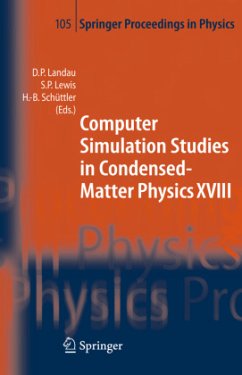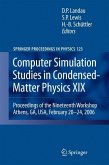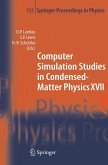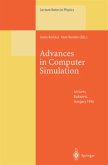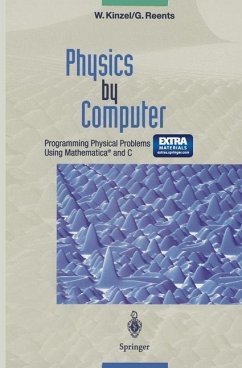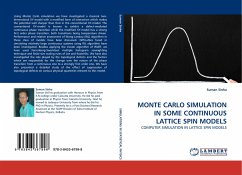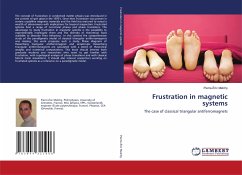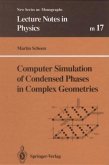Almost two decadesago,becauseof the tremendousincreaseinthe powerand utility of computer simulations,The University of Georgiaformed the ?rst - stitutionalunitdevotedtotheuseofsimulationsinresearchandteaching:The Center for Simulational Physics. As the international simulations community expanded further, we sensed a need for a meeting place for both experienced simulators and neophytes to discuss new techniques and recent results in an environment which promoted lively discussion. As a consequence, the Center for Simulational Physics established an annual workshop on Recent Devel- ments in Computer Simulation Studies in Condensed Matter Physics. This year's workshop was the eighteenth in this series, and the continued int- est shown by the scienti?c community demonstrates quite clearly the useful purpose that these meetings have served. The latest workshop was held at The University of Georgia, March 7-11, 2005, and these proceedings provide a "status report" on a number of important topics. This volume is published with the goal of timely dissemination of the material to a wider audience. We wish to o?er a special thanks to IBM for partial support of this year's workshop. This volume contains both invited papers and contributed presentations on problems in both classical and quantum condensed matter physics. We hope that each reader will bene?t from specialized results as well as pro?t from exposure to new algorithms, methods of analysis, and conceptual dev- opments. Athens, GA, USA D. P. Landau October 2005 S. P. Lewis H. -B.

